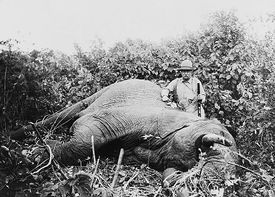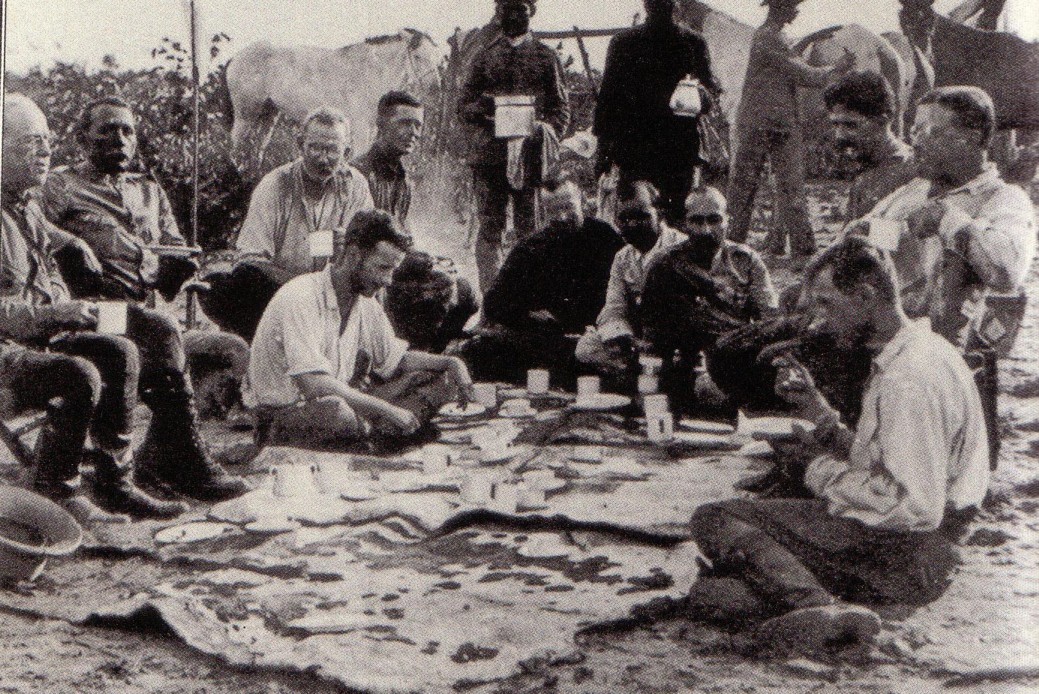

Rubén Darío, "To Roosevelt" (1905).
Theodore Roosevelt was the individual who most represented the US incursions
into Latin America that outraged even nonpolitical poets such as Rubén
Darío (Nicaragua, 1867-1916). Latin Americans had admired the energy,
wealth, and democracy of the United States, but now they feared the bullying
of their northern neighbor. President Roosevelt supported a 1903 revolution
in Panama that resulted in the annexation by the U.S. of territory for the
Panama Canal, and in 1904 proclaimed a coorollary to the Monroe Doctrine which
justified the use of the U.S. military to "police" Latin America.
It is with the voice of the Bible, or the verse of Walt Whitman, You are the United States, You are the proud and strong exemplar of your race; You think that life is fire, No. The United States is potent and great. |
But our America, that has had poets And, although you count on everything, you lack one thing: God! |
Roosevelt was a historian and naturalist who wrote more than 40 books and also loved hunting and was obsessed with manliness, both personal and national (he wrote an essay called "The Strenuous Life" and was a really big fan of Japan, for instance, which he considered a warrior culture, and even brought a judo master to fight with him at the White House); he also sort of invented parkour (he told his kids to go on character-improving "point-to-point" hikes where they had to get from point A to point B by going over, under, or through, but not around, everything in their path) and went on a year-long safari after leaving the White House. In April 1909, he landed in Mombasa with his son Kermit. Roosevelt, at the head of a safari including 250 porters and guides, trekked across British East Africa, into the Belgian Congo and back to the Nile, ending in Khartoum. The expedition collected 1,100 specimens, including 500 big game. "The most noteworthy collection of big animals that has ever come out of Africa," he exclaimed. Unfortunately for the animals, "collected" in those days was an euphemism for shot and killed. Between the two of them, Theodore and Kermit slew 512 beasts, including 17 lion, 11 elephant and 20 rhinoceros.
 |
 |
